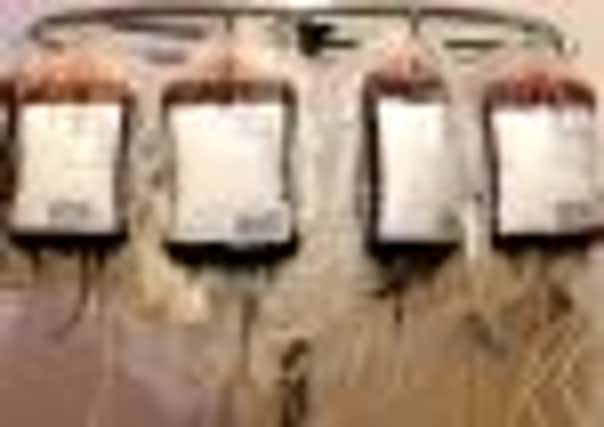Penrose Inquiry: Bad blood inquiry costs £9m and it’s not finished yet


With almost a year to go before the Penrose Inquiry is expected to publish its final conclusions, it has become one of the most expensive investigations of its type ever held in Scotland.
Yesterday, the Scottish Government disclosed that the “interim cost” of Penrose now stood at £8,788,901, leading opposition politicians to question whether it had been conducted in the most efficient manner possible.
Advertisement
Hide AdAdvertisement
Hide AdSetting up the inquiry was a key commitment of the SNP when it came to power in 2007.
The investigation, under retired Court of Session judge Lord Penrose, followed a long campaign highlighting the fact that hundreds of people in Scotland, including haemophilia sufferers and other patients, were given contaminated NHS blood in the 1970s and 1980s.
The inquiry began taking evidence three years ago and the public hearings drew to a close last month.
In addition to Lord Penrose, 12 people work for the investigation including a six-strong legal team led by Laura Dunlop, QC.
The interim cost of the inquiry came to light in an answer from health secretary Nicola Sturgeon to a written question tabled by her SNP colleague Gil Paterson.
The disclosure of the cost so far led to the Conservative health spokesman Jackson Carlaw suggesting that more could be done to keep costs down.
“It’s extremely important we find answers from this inquiry and those affected receive the outcome they are looking for,” Mr Carlaw said.
“But this cost does raise questions about finding ways to get to the bottom of such issues in a more efficient, streamlined way, and that terms of reference for the process are stated at the outset.”
Advertisement
Hide AdAdvertisement
Hide AdThe cost exceeds other independent public inquiries held in Scotland. Lord Gill’s inquiry into the nine deaths and 33 injuries that resulted from the explosion at the ICL plastics factory in Glasgow in May 2004 cost £3.94m. The inquiry into the Shirley McKie fingerprint scandal cost about £4.75m.
Lord Penrose himself spoke about the likely costs on the inquiry’s opening day, when he was at pains to point out that the inquiry had been funded by the Scottish Government’s health department.
Back then, Lord Penrose said: “Every pound that is spent on the inquiry is a pound that is not available for the care and treatment of National Health Service patients in Scotland.
“Every hour of clinicians’ and other specialists’ time that is spent at this inquiry is an hour that is not available for scientific research or for the care and treatment of patients in the wider health service.”
Yesterday, one of the campaigners who fought for the inquiry expressed his concerns about the way money had been spent.
Scottish Infected Blood Forum convener Philip Dolan – who was infected with hepatitis C during treatment for haemophilia – said: “The question of cost should not come into getting an open and fair inquiry into why people have died or become seriously ill as a result of NHS treatment.”
However, he added: “On the first day of the inquiry, Lord Penrose started off saying that it was financed by the NHS and that every pound spent on the inquiry was a pound away from patients.
“We were sitting in the back row with those whose relatives had died. We felt like lepers and yet sitting in front of him were around 20 solicitors or QCs.”
Advertisement
Hide AdAdvertisement
Hide AdLast night neither the Scottish Government nor the inquiry would say how much had been spent on paying lawyers, but QCs can expect to make about £3,500 per day and junior counsels about £2,500.
A Scottish Government spokesman said: “The Penrose Inquiry is independent of Scottish ministers and it is a matter for the chairman, Lord Penrose, to decide how best to run the Inquiry.
“[It] is funded by the Scottish Government in accordance with the Inquiries Act 2005 and the Scottish Government maintains an oversight of the resources required by the inquiry.
“The total cost will be published once the Inquiry has come to an end.”
A spokeswoman for the inquiry pointed out that 118,000 documents had been analysed, 150 written statements had been taken and 67 people had given oral evidence over 89 days.